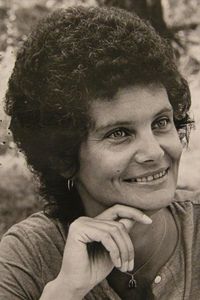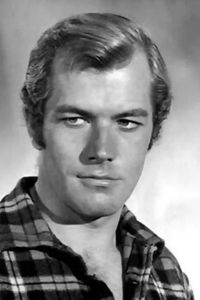Anja Breien embarked on her cinematic odyssey in the year 1940, commencing her educational sojourn at the University of Oslo, where she devoted herself to the study of the French language. This foundation in linguistics would subsequently serve as a springboard for her future pursuits in the film industry.
As her academic trajectory unfolded, Breien's curiosity and passion for the cinematic arts led her to cross the Channel and enroll at L'Institut des hautes études cinématographiques (IDHEC) in France. It was at this esteemed institution that she honed her skills and knowledge, ultimately graduating in 1964.
Prior to commencing her formal education, Breien's career in the film industry was already gaining momentum. Her early foray into the world of cinema began with a stint as a script supervisor on Nils R. Müllers film "Det Store Varpet" in 1961, a project that would prove to be a valuable learning experience and a testament to her dedication to the craft.
Breien marked the beginning of her esteemed directorial career with the short film "Growing Up" in 1967, which was ingeniously crafted around the framework of a medieval legend, showcasing her creative prowess from the very onset.
The short film, "Growing Up", would later become an integral component of the portmanteau film "Days From A Thousand Years" in 1970, further solidifying Breien's reputation as a visionary director.
Breien's feature film debut was the thought-provoking criminal drama "Rape" in 1971, which garnered widespread critical acclaim and has since been re-released on DVD as part of the prestigious "Norwegian Classics"-line, a testament to its enduring impact and relevance.
Pernilla August Breien's sophomore film endeavor, "Wives", made a significant splash in the cinematic world upon its release in 1975, ultimately achieving a remarkable level of commercial success. This notable achievement was accompanied by widespread critical acclaim, with the film being widely praised for its bold and pioneering feminist perspective. As a result, Breien earned the moniker "dogme-director" - a nod to her innovative approach to storytelling - an impressive twenty years prior to the actual inception of the Dogme 95 movement. Furthermore, the film's success also led to the creation of two sequels, "Wives - Ten Years After" (1985) and "Wives III" (1995),which delved into the lives of the characters two decades after the events of the original film, providing a captivating glimpse into their personal growth and development.
Breien's cinematic endeavors, spanning from "Games of Love and Loneliness" in 1977 to "Heritage" in 1979, solidified her stature as a prominent filmmaker within the Norwegian film industry. Her 1981 dramatic masterpiece, "Witch Hunt", earned a prestigious selection at the esteemed Venice Film Festival, a testament to her artistic prowess.
The accomplished director, Marit Breien, has not only left an indelible mark on the world of feature films, but has also demonstrated her versatility and creative range by tackling a diverse array of short and documentary films throughout her illustrious career.
In recent years, Breien's cinematic endeavors have continued to garner widespread recognition and acclaim, with films such as "Solvorn" (1997),"To See a Boat in Sails" (2000),"Untitled - Sans tître" (2005),"Etching" (2009),and "Yezidi" (2009) receiving accolades at prestigious international film festivals.
These notable films, a testament to Breien's skill and artistry, have not only been showcased at esteemed festivals, but have also earned numerous awards, further solidifying her reputation as a masterful director.
Notably, Breien has further solidified her reputation as a multifaceted creative force by venturing into the realm of writing, a talent she has honed over the years by penning the screenplays for many of her own films.
In addition to this impressive body of work, Breien has also demonstrated her versatility as a writer by crafting screenplays for other esteemed directors, including Ola Solum, whose 1994 film "Second Sight" is a testament to her skill and versatility as a storyteller.
Anja Breien stands out as a trailblazing figure among Norwegian women in the film industry, boasting an illustrious career that has spanned an impressive five decades, solidifying her position as one of the most influential and important directors in Norwegian cinematic history.









